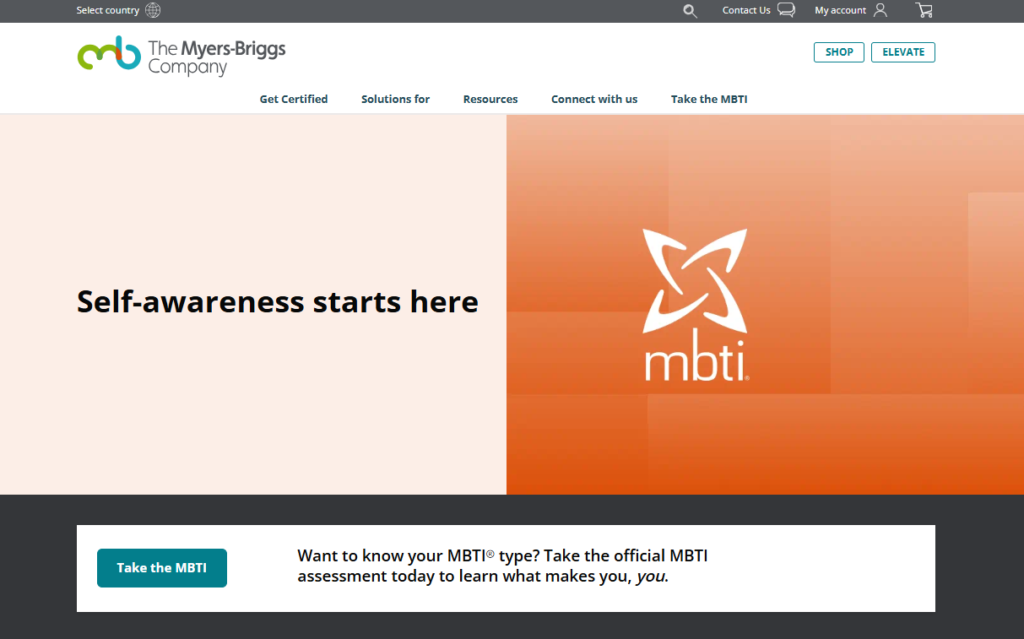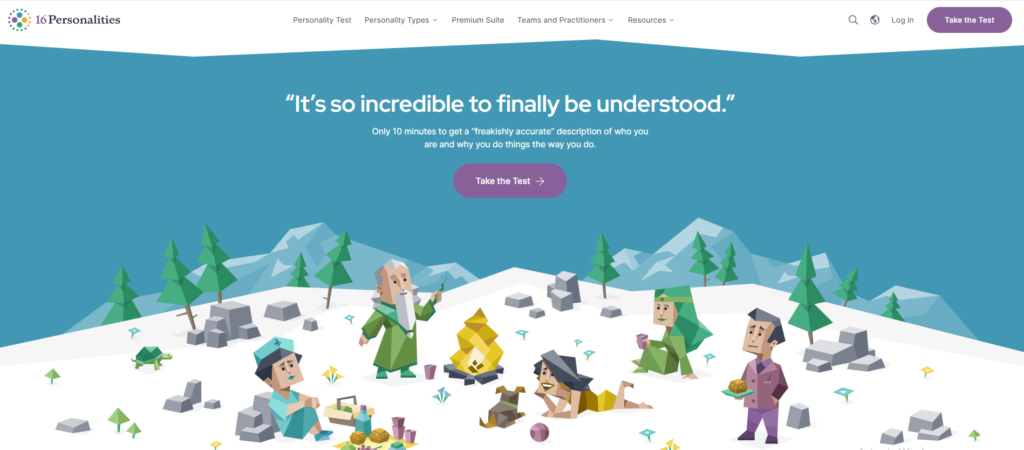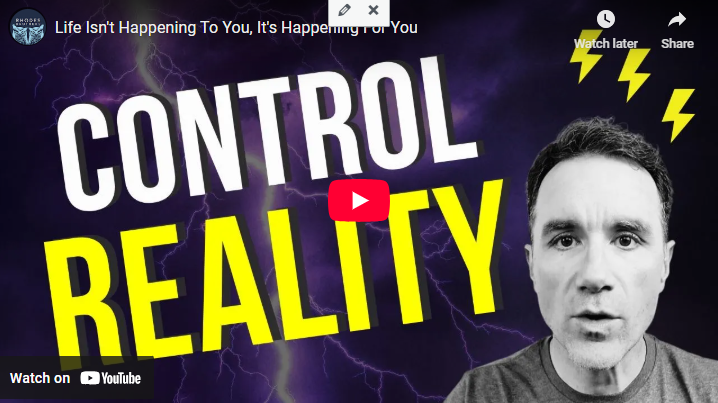For More Free Videos, Subscribe to the Rhodes Brothers YouTube Channel.
Do you ever catch yourself thinking, “I’m just an introvert” to explain why you avoid certain situations or step back instead of stepping forward? It’s a label many of us have grown comfortable with, but what if that label is doing more harm than good? What if being “introverted” isn’t a rigid personality type but a fluid trait that can be shaped and adapted? As John S. Rhodes of the Rhodes Brothers wisely puts it, “The labels we give ourselves often stunt our growth, reduce our impact, and make us less creative.” It’s time to challenge that narrative and unlock the potential you didn’t know was within you.

In this post, we’re diving headfirst into why the “introvert personality” type is a myth, how this label is limiting your potential, and actionable steps you can take to break free from it. Along the way, we’ll explore strategies to unlock your hidden extroversion, leverage social connections, and thrive in any situation—whether you’re at work, in your personal life, or simply navigating the world.
TL;DR
Here’s a quick snapshot of what you’ll learn in this post:
- Why the introvert/extrovert labels are oversimplified and harmful.
- How craving alone time doesn’t make you an introvert, just human.
- The role of social connection in personal and professional success.
- Actionable strategies to step out of the “introvert” box.
- Common pitfalls of self-labeling and how to avoid them.
- Tools and techniques to build confidence in social situations.
If you’ve ever felt stuck in the introvert/extrovert binary, this post will show you how to break free and embrace a more balanced, empowered version of yourself.
Understanding the Myth of Introversion

The introversion vs. extroversion debate has been around for decades, largely fueled by personality tests like the Myers-Briggs Type Indicator (MBTI). These tests offer tidy categories that make us feel understood, but reality isn’t so black-and-white. Most of us aren’t purely introverts or extroverts. In fact, the concept of “ambiverts” has gained significant traction in recent years.
Ambiverts are people who embody both introverted and extroverted traits, adjusting their behavior based on the situation. For example, you might enjoy quiet evenings reading a book but still thrive in engaging small-group discussions at work. According to a 2024 study published in The Journal of Personality Science, over 68% of people scored as ambiverts when tested on their social preferences. This means most of us don’t fit neatly into one personality type but instead exist on a spectrum.
Example: The Flexibility of Ambiverts
Think about a coworker who’s equally comfortable brainstorming ideas in a lively team meeting and working independently on a challenging project. That’s ambiversion in action. This flexibility allows people to adapt to different environments, making it a skill that’s critical for personal and professional growth.
Why Craving Alone Time Doesn’t Make You an Introvert
One of the most common reasons people label themselves as introverts is their love of alone time. But as John S. Rhodes reminds us, “Everyone needs breaks, rest, and relaxation. It doesn’t mean you’re an introvert; it means you’re human.” The truth is, needing time to recharge is a universal trait.
The Science of Alone Time
The human brain is designed to seek balance. Sensory overload—whether from loud noises, bright lights, or constant social interaction—can lead to physical and mental fatigue. This doesn’t make you introverted; it simply means your brain needs quiet moments to process and recover.
A 2019 study in Frontiers in Psychology found that even extroverts benefit from alone time. In fact, taking breaks to recharge improves focus, creativity, and emotional regulation for everyone.
Actionable Tip: Create a Recharging Routine
Alone time doesn’t have to mean isolating yourself indefinitely. Instead, use it intentionally to recharge and prepare for social interactions. Here’s a simple recharging routine you can try:
- Start with mindfulness: Spend 10 minutes meditating, practicing deep breathing, or journaling before a social event. Apps like Headspace or Calm can guide you through relaxation exercises.
- Set small goals: Write down one or two achievable objectives for the interaction. For example, aim to meet one new person or share one specific idea in a meeting.
- Use visualization: Picture yourself entering the situation with confidence. Visualizing positive outcomes can help reduce anxiety.
By reframing alone time as preparation, you’ll feel more in control and confident when stepping into social settings.
The Power of Social Connections are inherently social beings, and even those who identify as introverts crave connection. As John S. Rhodes points out, “Very few people want to be completely alone and have conversations with themselves.” The key isn’t to force yourself into large, overwhelming gatherings but to find meaningful connections that feel authentic.
Small Groups vs. Large Crowds
A common misconception is that disliking large crowds automatically makes you an introvert. However, many people—regardless of personality type—find large events overstimulating. What truly matters is the quality of your interactions, not the quantity.
Small groups allow for deeper, more fulfilling connections. For example, a heartfelt one-on-one conversation can be far more rewarding than mingling with dozens of people at a party.
Example: The Strength of Small Connections
You attend a networking event expecting to feel overwhelmed. Instead of trying to introduce yourself to everyone, you focus on one or two meaningful conversations. You ask thoughtful questions, share your own experiences, and leave with real connections rather than a stack of meaningless business cards.
Research from Harvard Business School supports this approach, showing that deep, purposeful interactions are more effective and fulfilling than surface-level networking.
Actionable Tip: Leverage Small-Scale Socializing
If large events make you uneasy, here are a few ways to make socializing more manageable:
- Host small gatherings: Organize intimate get-togethers with 2-3 friends or colleagues. For example, invite a couple of coworkers for coffee instead of attending a big office party.
- Join niche groups: Look for clubs or communities that align with your interests, such as book clubs, hiking groups, or cooking classes. Websites like Meetup or Facebook Groups can help you find smaller, interest-based gatherings.
- Prepare conversation starters: Having a few icebreakers ready can ease the pressure of small talk. Try open-ended questions like, “What’s been the most exciting thing you’ve worked on recently?” or “What’s a hobby you’re passionate about?”
Recognition vs. Attention
One of the most insightful points John S. Rhodes makes in his video is the distinction between attention and recognition. Many people shy away from the spotlight, assuming it makes them introverted. But as Rhodes explains, “You might not like attention, but you certainly enjoy recognition.”
Why Recognition Matters
Recognition is about being valued for your contributions, not being the center of attention. For instance, you might feel uncomfortable giving a speech in front of a crowd but still appreciate receiving an award for your hard work. Recognition fuels our sense of purpose and motivates us to keep striving.
Example: Quiet Recognition at Work
Imagine you’re part of a project team. While you might not want to present the final report to leadership, you still take pride in your contributions. When your manager acknowledges your role in the project during a team meeting, you feel appreciated without being thrust into the spotlight.
Actionable Tip: Seek Recognition in Meaningful Ways
If you’re uncomfortable with traditional forms of attention, here are some alternatives to embrace recognition:
- Ask for feedback: Regularly check in with colleagues, friends, or mentors to gather input on your work. This not only helps you grow but also reinforces your value.
- Celebrate small wins: Share your achievements with close friends or family. For example, text a friend after completing a challenging task or milestone.
- Recognize others: Acknowledging the contributions of others fosters mutual appreciation and builds stronger connections.
As Maya Angelou once said, “People will forget what you said, people will forget what you did, but people will never forget how you made them feel.” By creating meaningful connections and recognizing others, you also strengthen your own sense of belonging.
Tools to Redefine Your Social Confidence
Breaking free from the introvert label doesn’t mean forcing yourself into uncomfortable situations. Instead, it’s about finding balance and using the right tools to grow. Here are some resources to help:

- Journaling Apps: Tools like Day One or Reflectly can help you track your social experiences, identify patterns, and set goals.
- Personality Insights: Use tests like 16 Personalities to better understand your tendencies and how to leverage them.
- Social Skill Courses: Platforms like Udemy and Skillshare offer classes on communication and confidence-building.
- Networking Apps: Apps like Shapr or Bumble Bizz connect you with like-minded professionals in smaller, more manageable settings.
- Books: Daring Greatly by Brené Brown (on vulnerability and connection), How to Win Friends and Influence People by Dale Carnegie (classic tips on building meaningful relationships)
By understanding the myth of introversion and embracing the flexibility of ambiversion, you can shed limiting labels and step into a more empowered version of yourself. Whether it’s through small social connections, meaningful recognition, or intentional recharge routines, each step you take will bring you closer to unlocking your full potential.
Actionable Steps to Break Free from the “Introvert” Label and Unlock Your True Potential
Breaking free from the “introvert” label starts with taking small, intentional steps that build your social confidence over time.
For beginners, the key is to start small and focus on manageable interactions. Begin by engaging in one-on-one conversations, like inviting a coworker for coffee or chatting with a neighbor. These low-pressure situations allow you to practice without feeling overwhelmed. You can also set weekly “micro-challenges,” such as giving someone a compliment or asking a simple question like, “How was your weekend?” Over time, these small actions build the foundation for stronger social skills. Additionally, practicing active listening—making eye contact, nodding to show understanding, and asking follow-up questions—can help you feel more confident and engaged in conversations. Tools like Meetup can also connect you with small interest-based groups, giving you the chance to socialize in environments where you feel more comfortable.
For millennials, balancing social confidence with the demands of modern life often requires leveraging both in-person and digital opportunities. Social media, for example, can be a great place to start. Instead of passively scrolling, use it to build meaningful connections by commenting thoughtfully on posts or engaging with professional networks on platforms like LinkedIn. Hosting small gatherings, such as a game night or casual dinner, is another way to create opportunities for deeper connections without the stress of large events. Networking apps like Bumble Bizz or Shapr can also help you build professional relationships in a more personalized way. If you’re looking to grow professionally, consider enrolling in a public speaking course, such as Toastmasters or a Udemy Public Speaking Masterclass, to build confidence in communicating your ideas both socially and professionally.
For professionals, social confidence can directly impact career advancement, making it essential to step out of the “introvert” mindset. Start by contributing in meetings in small but meaningful ways, like preparing one question or comment in advance. One-on-one check-ins with managers or colleagues are another effective way to build rapport and share ideas in a lower-pressure setting. Instead of attending large, impersonal networking events, focus on “quality networking” by reaching out to mentors or peers for virtual coffee chats or joining smaller, industry-specific workshops. Tracking your progress through journaling apps like Reflectly or Daylio can also help you reflect on what went well during social interactions, boosting your confidence over time and helping you identify areas for growth.
For those nearing retirement, social connections remain essential for maintaining community and purpose. Taking up a social hobby, such as joining a gardening club, book club, or volunteering at a local charity, is a great way to meet others with similar interests. Reconnecting with old friends is another powerful way to build your social life—reach out via phone, email, or social media and suggest meeting for lunch or a walk. Attending local events, like library talks or art classes, provides additional opportunities for engagement in smaller, more intimate settings. If you’re hesitant about using technology, apps like Zoom or WhatsApp make it easier to stay connected with loved ones, no matter where they are.
For students and young adults, building social confidence early creates a strong foundation for personal and professional growth. Joining clubs or organizations is one of the best ways to meet like-minded peers and develop your social skills in a structured environment. Whether it’s a debate team, a cultural organization, or an intramural sports team, these groups allow you to practice interacting with others in a supportive setting. In class, try sitting in the middle or front rows, where you’re more likely to engage with peers and professors. Asking questions in class or group settings, even if they’re simple clarifications, helps you practice speaking up. Social media can also be a strategic tool—platforms like Instagram or Discord allow you to find communities that align with your interests and practice virtual conversations before transitioning to in-person interactions.
Regardless of your age or experience level, there are universal strategies and tools that can help anyone redefine their social confidence. One effective technique is the “1% rule”: commit to improving your social interactions by 1% each day, such as greeting one new person or making one small contribution in a meeting. Apps like BetterUp offer coaching to improve communication and confidence, while books like How to Win Friends and Influence People by Dale Carnegie and The Confidence Code by Katty Kay and Claire Shipman provide practical, actionable advice for building meaningful relationships. If social anxiety is a barrier, therapy or coaching can be incredibly helpful, with Cognitive Behavioral Therapy (CBT) being particularly effective for developing social confidence.
By implementing these steps, regardless of where you’re starting, you can gradually let go of the “introvert” label and embrace a more balanced, empowered version of yourself. Each small step—whether it’s joining a club, speaking up in a meeting, or hosting a small gathering—brings you closer to unlocking your full potential and building meaningful, lasting connections.
Common Mistakes to Avoid
When attempting to break free from the “introvert” label, it’s important to be aware of common mistakes that can unintentionally reinforce limiting beliefs.
- Mistaking Shyness for Introversion: A common mistake when breaking free from the “introvert” label is confusing shyness with introversion. Shyness is situational and often rooted in fear or discomfort in unfamiliar social settings, whereas introversion refers to how you recharge your energy. Shyness can be overcome with practice, but labeling yourself as an introvert because you feel shy in certain situations can create a false narrative about your personality. Instead of letting shyness define you, recognize it as a temporary response that improves with gradual exposure to social situations and a willingness to step into discomfort.
- Avoiding Growth Opportunities: Another trap is using the “I’m an introvert” label to avoid growth opportunities. Saying things like, “I’m too introverted for that” can become a self-imposed limitation that keeps you from stepping outside your comfort zone. Whether it’s turning down a networking event or avoiding public speaking, this mindset prevents you from building new skills or forming meaningful connections. Growth happens when you challenge yourself, so instead of using introversion as an excuse, remind yourself that discomfort is part of the process and leads to greater confidence over time.
- Overgeneralizing Behavior: People often overgeneralize their behavior based on their introverted tendencies, assuming that enjoying quiet time means they dislike all social settings. However, liking peaceful environments or solitary activities doesn’t mean you can’t enjoy meaningful conversations or thrive in smaller social groups. By overgeneralizing, you might avoid situations where you could feel comfortable or even energized. For example, you might skip a dinner with close friends because you’ve convinced yourself you don’t like socializing at all, even though the setting aligns with your preferences. Recognizing the nuances of your personality allows you to embrace social opportunities that feel authentic to you.
- Ignoring the Importance of Practice: Many people incorrectly believe that social confidence is an innate talent rather than a skill that can be developed. This mindset often leads to giving up too soon when social interactions feel awkward or challenging. The truth is, social skills—like any other ability—require consistent effort and practice to improve. For instance, if small talk feels daunting, start with simple steps like giving compliments or asking open-ended questions. Over time, these small actions build your confidence and help you feel more comfortable in a variety of social situations. Ignoring this need for practice only reinforces the notion that you’re “not good at socializing,” when in reality, it’s just a matter of effort and experience.
- Reframing Your Mindset: To avoid these common mistakes, it’s important to reframe how you think about yourself and your abilities. Instead of saying, “I’m an introvert, so I can’t do X,” try shifting to, “I’m working on becoming more comfortable with X.” This subtle but powerful shift removes the rigidity of the label and opens the door for growth. For example, if you feel nervous about attending a networking event, reframe your thoughts to focus on learning and improving rather than avoiding. This mindset change encourages you to embrace new challenges and see social situations as opportunities for growth, rather than as barriers defined by a fixed personality trait.
Frequently Asked Questions
Can introverts become more extroverted?
Yes, with practice and intentional effort, anyone can develop extroverted traits.
Is it bad to identify as an introvert?
Not inherently, but rigid labels can limit your growth and potential.
How do I balance alone time with socializing?
Schedule dedicated time for both. Use alone time to recharge and social time to build connections.
What should I do if I feel overwhelmed in crowds?
Focus on smaller interactions and take breaks as needed. Use grounding techniques like deep breathing.
Are introverts less successful than extroverts?
No, success depends on leveraging your strengths, not your personality type.
How can I improve my social skills?
Practice regularly, seek feedback, and expose yourself to new social situations.
What’s the difference between introversion and social anxiety?
Introversion is a personality trait, while social anxiety is a mental health condition that may require professional support.
Can I still enjoy large events as an introvert?
Absolutely! Focus on meaningful interactions and take breaks to recharge.
How do I handle small talk?
Prepare open-ended questions and listen actively to build deeper conversations.
What’s the best way to network as an introvert?
Prioritize quality over quantity. Build relationships one conversation at a time.
Embrace Your True Potential
We’ve debunked the myth of the “introvert personality” and shown how labeling yourself can limit your growth. Whether you crave alone time, feel nervous in crowds, or shy away from the spotlight, none of these traits define the entirety of who you are. As John S. Rhodes emphasizes, “How you operate in life is determined by the labels you give yourself.” It’s time to break out of the box and embrace the dynamic, multi-faceted person you truly are.
Here are your key takeaways:
- Craving alone time is normal: It’s about recharging, not isolating.
- Smaller connections matter more than big crowds: Focus on depth, not breadth.
- Recognition is different from attention: You can appreciate being valued without seeking the spotlight.
- Social skills are learnable: With practice, you can expand your comfort zone and thrive in new settings.
Now is the perfect time to put these strategies into action. Start small—host a coffee meetup, join a niche group, or practice speaking up in team meetings. Each step forward takes you closer to unlocking your potential.
So, what are you waiting for? Take the first step today, and don’t let outdated labels hold you back.
If you found value in this article, we’d love for you to continue learning and growing with us. Be sure to subscribe to the Rhodes Brothers YouTube Channel for insightful videos, practical training, and actionable tips to help you master your personal and professional life.
Resource List
Here’s a curated list of tools, books, and courses to help you on your journey:
Books to Dive Deeper
- How to Win Friends and Influence People by Dale Carnegie
- Quiet: The Power of Introverts in a World That Can’t Stop Talking by Susan Cain
- Daring Greatly by Brené Brown
Online Tools for Social Growth
- Meetup: Find groups based on your interests and connect in smaller settings.
- Eventbrite: Discover local events and workshops tailored to your comfort level.
Courses to Build Confidence and Communication Skills
- “The Complete Communication Skills Masterclass” (Udemy): A practical guide to improving social and professional interactions.
- “Embracing Change” by Coursera: Learn how to overcome self-imposed limitations and adapt to any situation.
Podcasts for Inspiration and Growth
- The Art of Charm: Focusing on social skills and confidence-building.
- Happier with Gretchen Rubin: Exploring actionable strategies for a better life.
- The Tim Ferriss Show: Insights from top performers on overcoming challenges and mastering their mindsets.
Apps to Track and Improve Your Progress
- Habitica: Gamify your goals, including social challenges, to stay motivated.
- Reflectly: A journaling app to track your thoughts and social growth over time.
- Headspace: Use guided meditations for pre-event nerves or post-event decompression.





